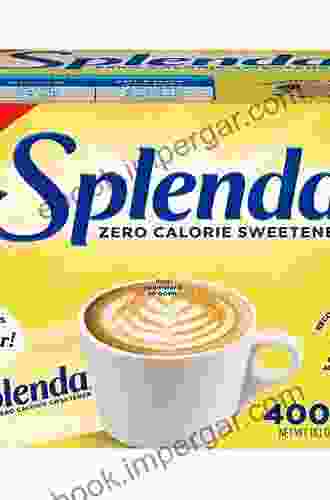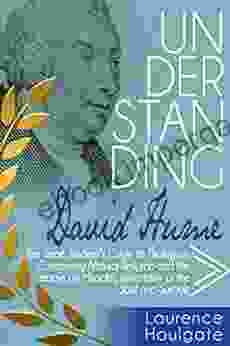The Sweet Deception: The Story of Artificial Sweeteners from Saccharin to Splenda

4.6 out of 5
| Language | : | English |
| File size | : | 2849 KB |
| Text-to-Speech | : | Enabled |
| Screen Reader | : | Supported |
| Enhanced typesetting | : | Enabled |
| Word Wise | : | Enabled |
| Print length | : | 291 pages |
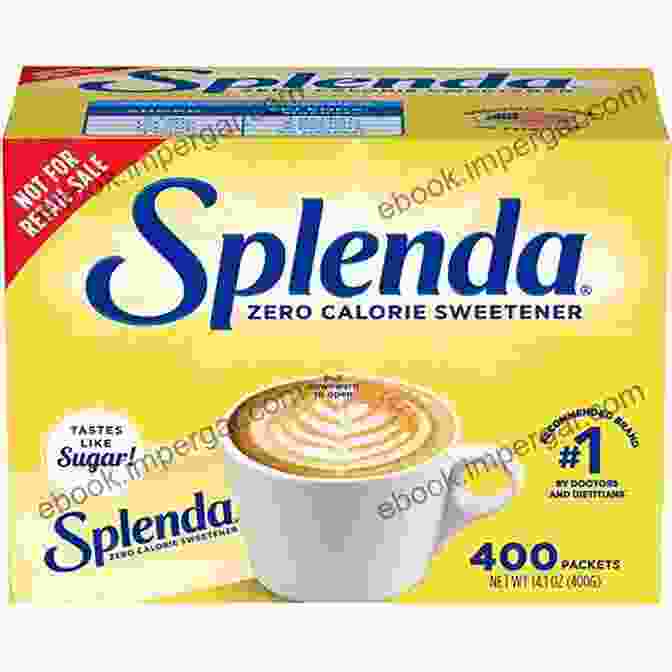
Artificial sweeteners have become an indispensable part of our modern diet. They offer a sweet taste without the calories and sugar content, making them a popular choice for weight-conscious individuals and those with diabetes. But what is the story behind these sugar substitutes? How did they come into being, and how have they evolved over time?
Saccharin: The First Artificial Sweetener
The journey of artificial sweeteners began in 1879 when Constantin Fahlberg, a German chemist, stumbled upon a sweet substance while working on coal tar derivatives. He accidentally tasted the substance and found it to be incredibly sweet. Fahlberg named this new substance "saccharin," which means "sugar-like" in Latin.
Saccharin quickly gained popularity as a sugar substitute due to its intense sweetness, which is 300-500 times sweeter than sucrose (regular sugar). It was widely used in food and beverages, especially during the sugar shortages during World War I. However, concerns about its safety arose in the 1970s when studies linked saccharin to cancer in laboratory animals.
Despite these concerns, saccharin remains a widely used artificial sweetener today, although it is often used in combination with other sweeteners to reduce its potential risks.
Aspartame: The Sweetener of the 80s and 90s
In 1965, two chemists at G.D. Searle & Co. discovered aspartame while searching for an ulcer drug. Aspartame was found to be 200 times sweeter than sucrose and had no bitter aftertaste like saccharin. It quickly became the most popular artificial sweetener, used in a wide range of products, including diet sodas, chewing gum, and tabletop sweeteners.
However, aspartame has also been the subject of controversy. Some people have reported experiencing side effects such as headaches, dizziness, and mood changes after consuming aspartame. Despite extensive scientific research, there is no conclusive evidence linking aspartame to any serious health problems.
Sucralose: The Zero-Calorie Sweetener
In 1991, the FDA approved sucralose, a no-calorie artificial sweetener that is 600-1000 times sweeter than sucrose. Sucralose is made by selectively chlorinating sucrose molecules, resulting in a substance that is essentially indigestible by the human body.
Sucralose has become one of the most widely used artificial sweeteners due to its high sweetness, zero calories, and lack of bitterness. It is found in a wide range of products, including diet sodas, baked goods, and tabletop sweeteners.
Splenda: The Branded Sweetener
Splenda is a brand of sucralose produced by the company Johnson & Johnson. It is marketed as a no-calorie, sugar-free sweetener that is twice as sweet as sugar. Splenda quickly gained popularity due to its widespread marketing campaigns and the fact that it is not associated with any of the potential side effects of aspartame.
Today, Splenda is one of the most recognized brands of artificial sweeteners, used in a wide range of food and beverage products.
The Health Implications of Artificial Sweeteners
While artificial sweeteners offer a low-calorie alternative to sugar, there is still some debate about their potential health implications. Some studies have linked artificial sweeteners to weight gain, metabolic syndrome, and even cancer. However, more research is needed to determine the long-term effects of artificial sweeteners on human health.
If you are concerned about the potential health risks of artificial sweeteners, it is recommended to limit their intake and opt for natural sweeteners such as honey, maple syrup, or stevia.
From the accidental discovery of saccharin to the development of modern sweeteners like Splenda, the story of artificial sweeteners is a fascinating tale of scientific innovation and our relentless pursuit of a sweet taste without the associated calories and sugar content. While concerns about the potential health implications of artificial sweeteners persist, they remain a widely used and popular sugar substitute in our modern diet.
As we continue to learn more about the long-term effects of artificial sweeteners, it is important to consume them in moderation and be aware of their potential risks. Ultimately, the decision of whether or not to consume artificial sweeteners is a personal one, and it should be made after carefully considering the available scientific evidence and your individual health needs.
4.6 out of 5
| Language | : | English |
| File size | : | 2849 KB |
| Text-to-Speech | : | Enabled |
| Screen Reader | : | Supported |
| Enhanced typesetting | : | Enabled |
| Word Wise | : | Enabled |
| Print length | : | 291 pages |
Do you want to contribute by writing guest posts on this blog?
Please contact us and send us a resume of previous articles that you have written.
 Book
Book Novel
Novel Page
Page Chapter
Chapter Text
Text Story
Story Genre
Genre Reader
Reader Library
Library Paperback
Paperback E-book
E-book Magazine
Magazine Newspaper
Newspaper Paragraph
Paragraph Sentence
Sentence Bookmark
Bookmark Shelf
Shelf Glossary
Glossary Bibliography
Bibliography Foreword
Foreword Preface
Preface Synopsis
Synopsis Annotation
Annotation Footnote
Footnote Manuscript
Manuscript Scroll
Scroll Codex
Codex Tome
Tome Bestseller
Bestseller Classics
Classics Library card
Library card Narrative
Narrative Biography
Biography Autobiography
Autobiography Memoir
Memoir Reference
Reference Encyclopedia
Encyclopedia Kelsey Oseid
Kelsey Oseid Kieran Ball
Kieran Ball Keri Arthur
Keri Arthur Kerry O Halloran
Kerry O Halloran Kenneth D Ackerman
Kenneth D Ackerman Keng C Wu
Keng C Wu Ken Wells
Ken Wells Kenneth R Lang
Kenneth R Lang Kellye Laughery
Kellye Laughery Kermit Roosevelt
Kermit Roosevelt Kevin House
Kevin House Kim Collins
Kim Collins Kevin Bridges
Kevin Bridges Kenneth Blum
Kenneth Blum Kevin Mccain
Kevin Mccain Kenji Jasper
Kenji Jasper Ken Matesz
Ken Matesz Kevin J Todeschi
Kevin J Todeschi Kim Brackett
Kim Brackett Kim Field
Kim Field
Light bulbAdvertise smarter! Our strategic ad space ensures maximum exposure. Reserve your spot today!

 Cormac McCarthyThe Beginner's Guide to Inexperienced Cleansing: Your Key to a Healthier,...
Cormac McCarthyThe Beginner's Guide to Inexperienced Cleansing: Your Key to a Healthier,...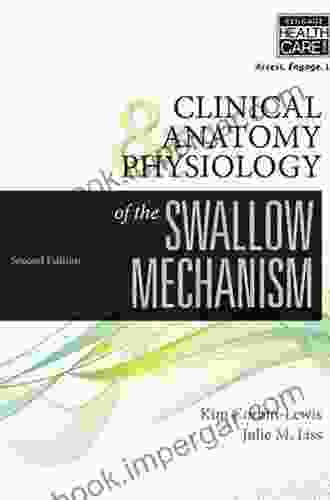
 Carl WalkerClinical Anatomy Physiology Of The Swallow Mechanism: A Comprehensive Guide...
Carl WalkerClinical Anatomy Physiology Of The Swallow Mechanism: A Comprehensive Guide... Dan BellFollow ·7.5k
Dan BellFollow ·7.5k Bradley DixonFollow ·6.5k
Bradley DixonFollow ·6.5k Enrique BlairFollow ·18.4k
Enrique BlairFollow ·18.4k Henry HayesFollow ·2k
Henry HayesFollow ·2k Stan WardFollow ·6.6k
Stan WardFollow ·6.6k Bill GrantFollow ·18k
Bill GrantFollow ·18k Cristian CoxFollow ·16.5k
Cristian CoxFollow ·16.5k Kenneth ParkerFollow ·14.2k
Kenneth ParkerFollow ·14.2k

 Chadwick Powell
Chadwick PowellDiscover the Secrets of Optimal Health with "The Healthy...
Preface: Embark on a Transformative...
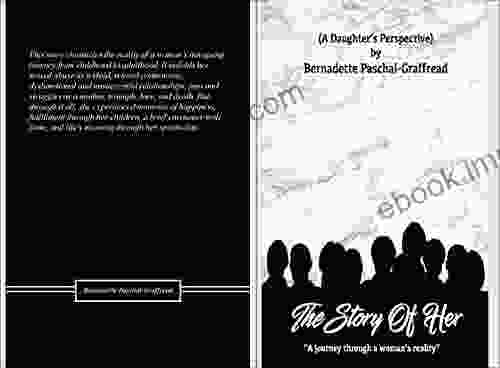
 Andres Carter
Andres CarterUnveiling the Profound Journey of Womanhood: A Daughter's...
In the tapestry of...
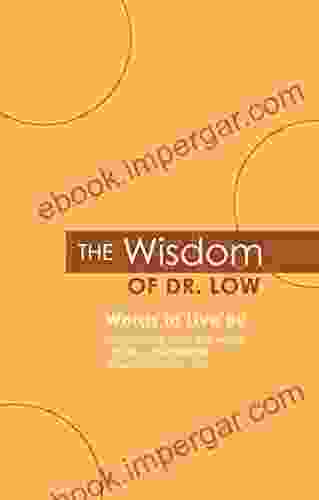
 Travis Foster
Travis FosterWords to Live By: The Essential Guide to Finding...
Words have the power to shape our...

 Chinua Achebe
Chinua AchebeThe Ultimate Guide for Men to Recover from a Breakup
: Breakups are never...

 Spencer Powell
Spencer PowellNew Mindset, New Results: The Proven Path to Unleashing...
About the Book ...
4.6 out of 5
| Language | : | English |
| File size | : | 2849 KB |
| Text-to-Speech | : | Enabled |
| Screen Reader | : | Supported |
| Enhanced typesetting | : | Enabled |
| Word Wise | : | Enabled |
| Print length | : | 291 pages |


